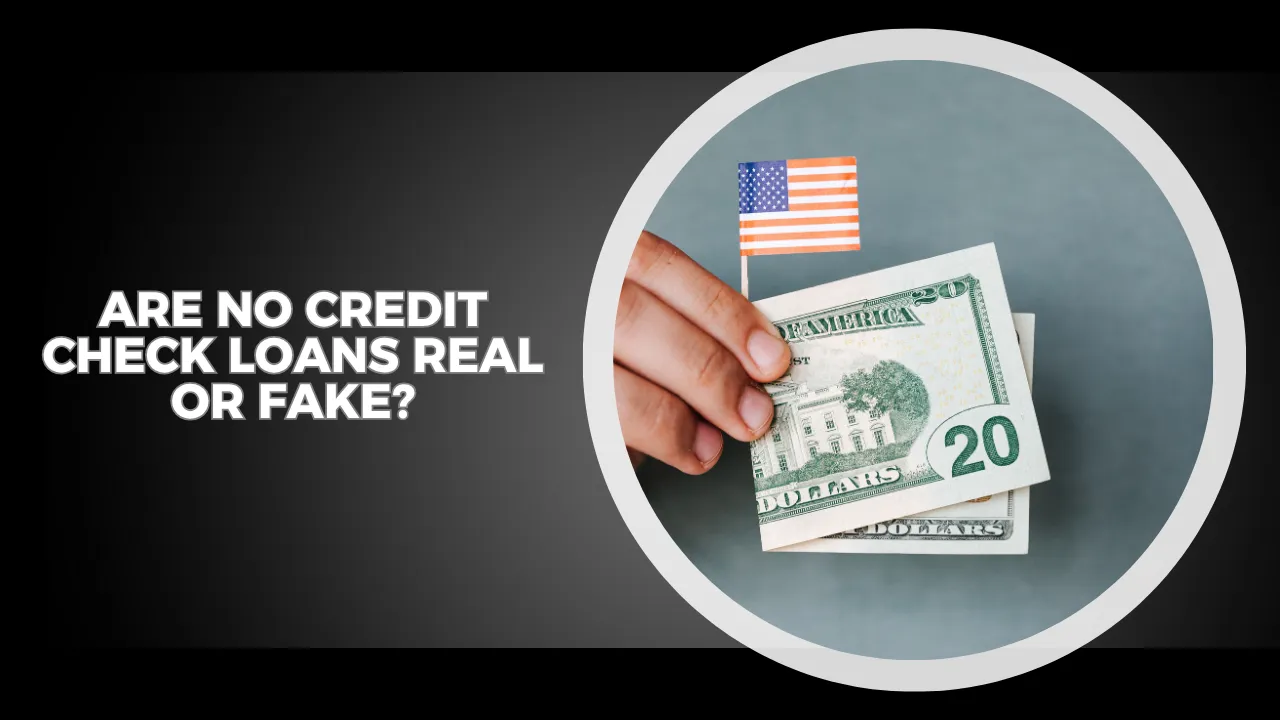If you’ve ever been denied a loan because of poor credit or a thin credit history, you’ve probably come across ads promising “no credit check loans.” At first glance, they sound like a dream come true — a quick way to get money without lenders digging into your financial past. But are these loans actually real, or are they too good to be true?
The truth lies somewhere in between. While some legitimate lenders do offer options with minimal credit scrutiny, others use the term “no credit check” loosely, which can lead borrowers into risky territory. Understanding the difference between real, regulated lenders and misleading or predatory ones can save you from serious financial trouble.
Let’s take a closer look at how no credit check loans work, why they’re so popular, and what you need to watch out for before applying.
What “No Credit Check” Really Means
To understand whether these loans are real, we first need to unpack what the phrase actually means. A “no credit check loan” implies that the lender won’t run a hard credit search — the kind that appears on your credit report and can affect your credit score.
Instead, some lenders use what’s known as a soft credit check. This doesn’t impact your score and only gives the lender a limited snapshot of your financial history. It allows them to verify your identity, income, and recent borrowing behavior without a deep investigation into past defaults or missed payments.
The key here is that almost all legitimate lenders still perform some form of affordability or risk assessment, even if they don’t use a traditional credit bureau check. If a lender promises completely no checks whatsoever, that’s a red flag — it usually means the loan comes with sky-high interest rates or hidden conditions designed to offset the risk.
When researching quick-approval options in the UK, many borrowers explore short-term lending platforms like best payday loans uk, which connect users to FCA-regulated lenders. These services may include soft checks or alternative affordability assessments, helping applicants with lower credit scores find manageable repayment options. This approach keeps borrowing transparent and compliant while still catering to those who need access to emergency funds.
Why Lenders Check Credit in the First Place
Credit checks aren’t there to punish borrowers — they exist to protect both sides. For the lender, they help predict how likely a borrower is to repay. For the borrower, they ensure that loan amounts and repayment terms are appropriate for their financial situation.
Think of it this way: a reputable lender wants you to succeed in paying back your loan. A dishonest one wants you to fail so they can collect extra fees and interest. If a lender doesn’t seem interested in your ability to repay, that’s a major warning sign.
Even payday lenders, who cater to people with weaker credit, typically conduct at least a basic income verification or soft check. This helps confirm that you can realistically afford the repayment schedule. It’s also a requirement under UK lending regulations designed to prevent consumer exploitation.
The Appeal of No Credit Check Loans
It’s easy to understand why these loans are so tempting. For many people, the traditional credit system feels unforgiving. A single missed payment or unexpected life event can lower your credit score dramatically, making it difficult to qualify for standard loans.
No credit check loans promise a second chance — a way to access money quickly when mainstream banks turn you away. They’re often marketed to people facing urgent expenses like car repairs, medical bills, or overdue rent.
However, while the idea sounds appealing, it’s important to remember that convenience often comes at a cost. Interest rates on such loans can be significantly higher than those on traditional personal loans. And if the lender is unregulated or based offshore, you may have little legal protection if things go wrong.
Recognizing Legitimate vs. Fake No Credit Check Lenders
So, how do you tell a real lender from a scam? Start with regulation. In the UK, any lender offering consumer credit must be authorised by the Financial Conduct Authority (FCA). You can verify this on the FCA register.
Legitimate lenders will also clearly outline loan terms — interest rates, repayment schedules, and total repayment amounts — before you sign anything. They won’t pressure you to make instant decisions or charge suspicious “processing” or “insurance” fees upfront.
Fake or predatory lenders, on the other hand, often operate under vague brand names, use aggressive sales tactics, or hide key information. Some even impersonate real companies. If a deal looks too good to be true — such as “instant approval, no checks, no proof of income” — it probably is.
The Role of Responsible Lending
Even if your credit is far from perfect, there are safer ways to borrow than turning to shady “no check” offers. Responsible lenders use flexible criteria to assess affordability, rather than relying solely on a credit score. They might look at your income, employment history, or recent financial activity to determine eligibility.
This approach allows them to lend to people who have faced past difficulties but are currently able to repay. It also ensures that borrowers don’t fall into deeper debt.
Some lenders also provide educational tools, budgeting support, or refinancing options — features you’ll never find with unregulated payday schemes. These are strong indicators that the company operates ethically and values long-term relationships over quick profits.
What Happens If You Can’t Repay
If you take out a no credit check or payday loan and can’t make your repayments, it’s important to act quickly. Contact your lender immediately. Many regulated companies can offer payment plans or deferments if you’re honest about your situation.
Ignoring the problem, however, can lead to escalating fees, damaged credit, or debt collection. In extreme cases, predatory lenders might use harassment or intimidation tactics. That’s why verifying the lender’s FCA registration before borrowing is crucial — regulated lenders must follow strict conduct rules that protect consumers.
If you ever find yourself overwhelmed by loan debt, organisations like StepChange, Citizens Advice, and National Debtline can offer free and confidential help.
Real-World Alternatives to No Credit Check Loans
If your credit score is holding you back, consider alternatives that don’t carry the same risks. Credit unions, community development lenders, or online platforms offering soft-check payday loans are good starting points. Some even report positive repayment data to credit agencies, helping you rebuild your credit over time.
You could also explore secured loans or guarantor loans if you have assets or someone willing to vouch for you. While these options still involve checks, they tend to come with fairer terms and lower interest than unregulated payday schemes.
Final Thoughts
No credit check loans exist — but not in the way the ads often suggest. True, regulated lenders may offer soft-check or alternative-verification loans, but they still assess affordability to protect you from unmanageable debt.
Completely “no check, instant approval” loans, on the other hand, are often dangerous or outright scams. They exploit financial stress and rely on borrowers being too desperate or uninformed to read the fine print.
If you ever consider taking one out, pause and do your research. Check for regulation, read reviews, and verify the lender’s credentials. It might take a few extra minutes, but that simple step could save you years of financial strain.
Borrowing should empower you, not trap you — and the right lender will always make sure it stays that way.




